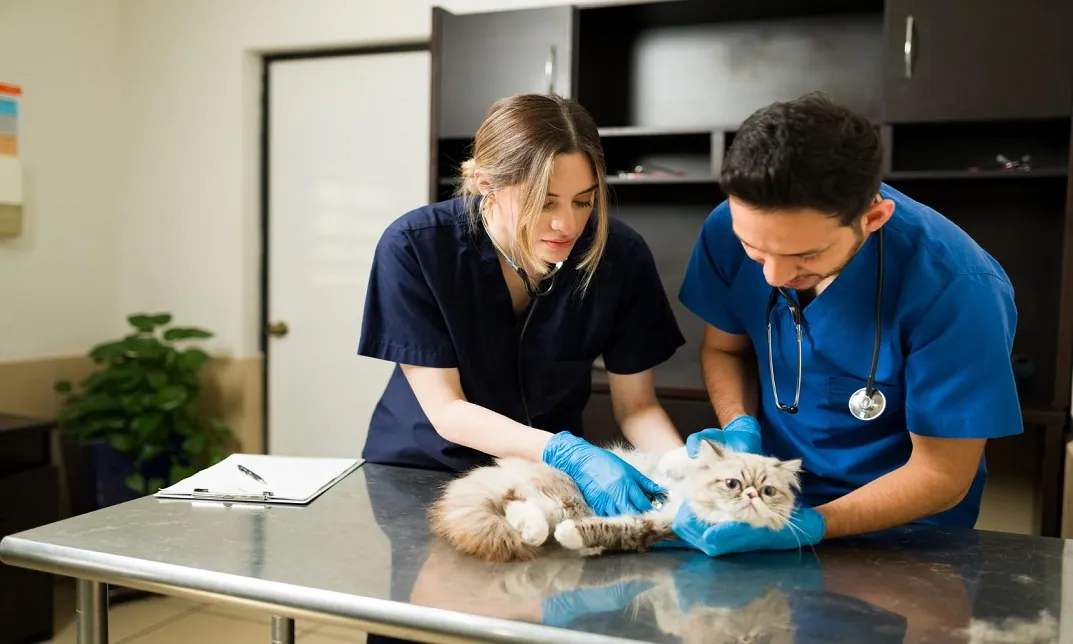



Overview
Are you looking for a unique animal care and psychology course? But, could not find out the best program for yourself? No worries! We are providing you with a special animal care and psychology course. In this animal care and psychology course, you will learn different types of animals and how to take care of them. Moreover, you will also gain several types of skills in animal care and get to know animal psychology.
Our animal care and psychology program was created by an industry expert. They are equipped with a wealth of knowledge in this area. They share valuable knowledge in this course. That way you can know everything.
At the end of this animal care and psychology course, you will go through the quiz competition which is going to help you to find out the problems of your learning. As a result, you can easily overcome it.
Fundamentals of Animal Care
Animal Care and Psychology course will teach you about the "five freedoms" liberty from hunger, thirst, and malnutrition. Liberty from fear and distress liberty from physical and thermal discomfort; liberty from pain, injury, and disease and The freedom to exhibit typical patterns of behaviour provide important direction in animal care.
Moreover, our Animal Care and Psychology course also covers Freedom from starvation and dehydration through easy access to fresh water and a healthy diet. This must be specific to the animal. Puppies, mature dogs, pregnant cats, and senior cats, for example, require various kinds of sustenance on different timetables.
Discomfort is alleviated by offering a suitable setting that includes shelter and a comfortable resting place. This includes comfortable mattresses as well as an appropriate temperature, noise level, and access to natural light. If an animal is left outside, it needs shelter from the weather as well as food and water bowls that will not freeze or tip over.
Our Animal Care and Psychology course will teach you about the prevent pain, injury, or illness through early detection and treatment. This includes vaccinating animals, watching their physical health, treating injuries, and administering medications as needed.
Allowing the animal to demonstrate normal behaviour by giving adequate space, proper facilities, and the company of its own kind. Animals must be able to interact with and avoid other members of their own species as wanted. They have to be capable of running, leap, and play while stretching every part of their body. This is especially difficult when animals are kept in individual kennels.
Guidelines for Ethical Conduct in the Care and Use of Animals
Our Animal Care and Psychology course covers different aspects
Respect for the dignity of creatures: Scholars must respect animals' worth, regardless of their utility value, as well as the concerns of animals as living, sentient beings. Researchers must be respectful when selecting topics and techniques, as well as when disseminating their findings. Researchers must provide treatment that is tailored to the specific requirements of each laboratory animal.
Responsibility for exploring alternatives: Our Animal Care and Psychology course also covers Researchers who are accountable for investigating whether there are alternatives to experiments on animals. If identical understanding can be obtained without using animals in laboratories, alternative alternatives must be prioritised.
If no viable alternatives exist, researchers should consider whether the study can be postponed until alternative methods are created. When defending animal experiments, researchers have to account for the lack of alternatives and the need to acquire information quickly.
Animal Care and Psychology course teach you about Proportionality. Proportionality is the duty of contemplating and balancing suffering and benefit. Educators must consider the possibility that laboratory animals will suffer from discomfort or other forms of suffering and weigh it against the value of the study for animals, humans, or the environment.
Researchers are responsible for determining whether the study will benefit animals, humans, or the planet as a whole. The study's potential advantages must be taken into account, substantiated, and specified in both the short and long run. The duty to consider the scientific quality of the experiments and whether the experiments will have pertinent scientific benefits is also part of the responsibility.
Suffering can only be inflicted on animals if it is balanced by a significant and likely benefit to the animals.
Learning Outcome of Animal care and Psychology
After wrapping up this Creature Brain research preparing, understudies will be arranged to:
- Discover everything there is to know about animal behaviour.
- Understand about the psychology of canine behaviours.
- Discover about the neurology of cat behaviours.
- Learn about the psyche of rabbit behaviours.
Career path
You might be capable of exploring a range of promising career possibilities after finishing this program. This course particularly seeks to advance jobs in:
- Animal Trainer
- Dog Walker
- Pet Groomer
Who is the Animal Care and Psychology course for?
This course is perfect for anyone who is interested in having a job in the Animal Care business; even if you are new to this and have no previous understanding of Animal Care or Psychology, you will find this program very simple to comprehend.
If you are already working in the Animal Care area, this course will help you to enhance and advance your expertise.
Reason For Choosing Our Animal Care and Psychology Course?
The course is self-paced and accessible from anywhere.
High-quality study resources that are simple to understand.
Experts in the industry created the course.
After each module, an MCQ quiz will test your knowledge.
Assessment results are generated automatically and instantly.
Support is available around the clock by live chat, phone call, or email.
You will receive a free PDF certificate as soon as you finish the course.
Requirements for Admission
This course has no requirements because it does not need any advanced knowledge or abilities. Students who want to take this course must complete the following requirements:
Good proficiency in the English language
Must be energetic and self-driven
Basic computer knowledge
A minimum of 16 years of age is needed.
Assessment Procedure
You will get automated MCQ quizzes after finishing each module of the Teaching Assistant. To go to the next module, you must finish the quiz activity and score at least 60%. You will be eligible to obtain certification once you have completed all of the courses in this manner.
Certification
Unified Course will deliver you a Certificate of Completion once you complete this MCQ/Assignment exam. It will serve as documentation of your considerable professional progress. The certificate is in PDF format and may be downloaded for free. On request, a printed version is also available. It will also be sent to you through courier for £13.99.
Summary
This Animal Care and Psychology course is designed for those learners who are serious about their animal care. From farmer to professional animal care expert anyone can take this course. In addition, this Animal Care and Psychology course also has an option of a flexible time table. We know how busy you are. For that reason, you can study at your own preferred time.
Curriculum
-
- Module 01: An Overview of Animal Psychology 00:20:00
- Module 01 Final Quiz – An Overview of Animal Psychology 00:10:00
-
- Module 02: Understand The Psychology of Dog Behaviour88 00:35:00
- Module 02 Final Quiz – Understand The Psychology of Dog Behaviour 00:10:00
- Module 03: Understand The Psychology of Cat Behaviour88 00:40:00
- Module 03 Final Quiz – Understand The Psychology of Cat Behaviour 00:10:00
Price
Study Method
Online
Free Certificate
CPD Certified
Duration
2 hours, 50 minutes




